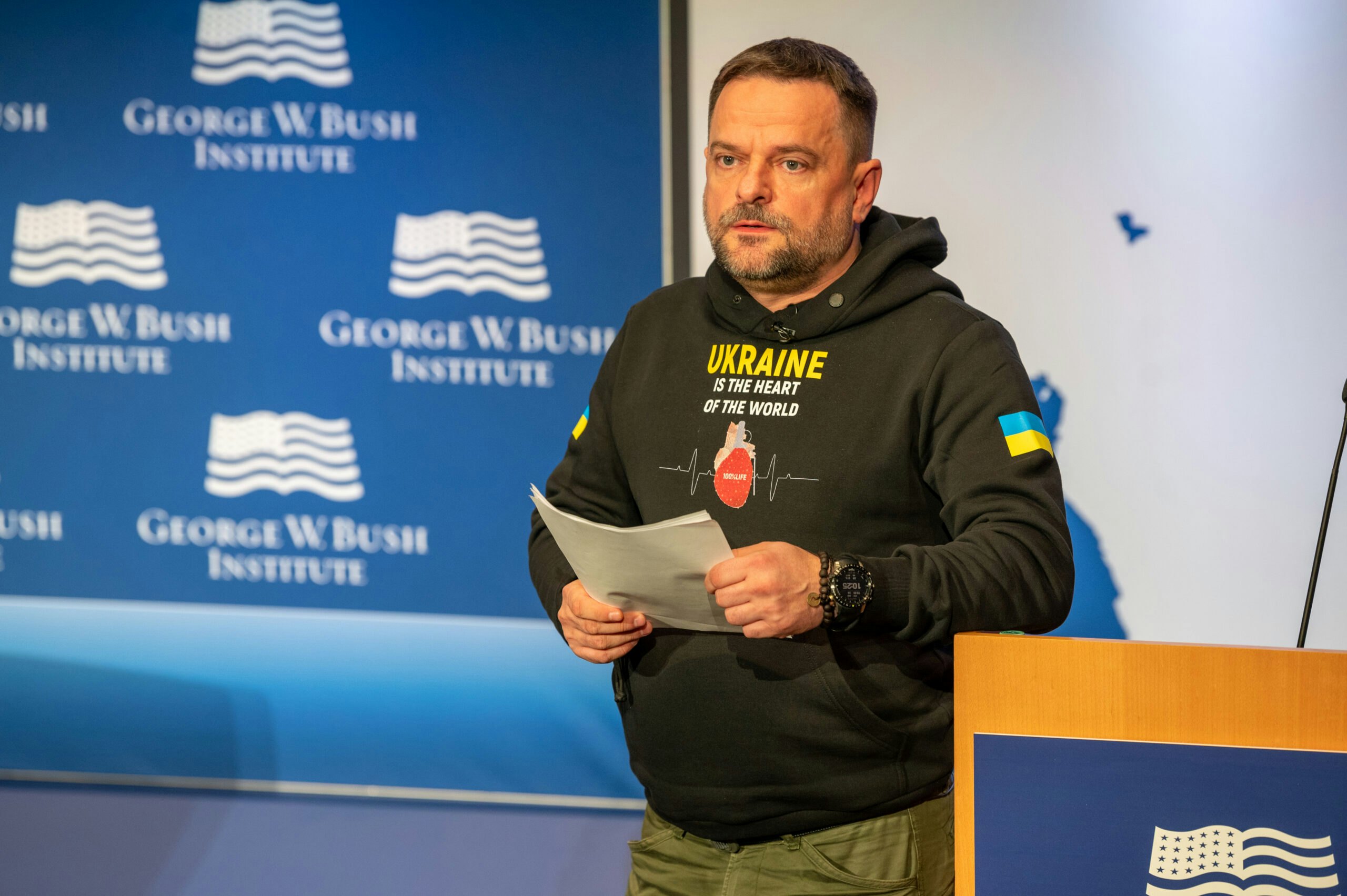Bush Institute Global Health Associate Crystal Cazier has worked in the cancer space for eight years but says she didn’t fully understand the extent of the disease’s severity and gravity until she observed cervical cancer screening in Zambia this summer. Crystal explains how a better world where women do not succumb to horrific, preventable, and treatable diseases like cervical cancer is within reach.
569,847 women are diagnosed with cervical cancer every year. Each woman represents a person with her own story; a human being we cannot neglect. If left untreated, cervical cancer is the worst kind of awful. It puts a woman in excruciating pain and leads to eventual death. It’s hard to imagine such a destructive disease.
I’ve worked in the cancer space for nearly eight years, but I didn’t fully understand the extent of its severity and gravity, especially in low resource settings, until I observed cervical cancer screening this summer in Zambia. I was in Zambia to complete a practicum with the Ministry of Health for my Master of Public Health program. Zambia has the third highest incidence of cervical cancer in the world, but also one of the most well-established screening programs in sub-Saharan Africa. Screening is free to all women at public health facilities.
The day I went to observe cervical cancer screening at a public clinic in Lusaka was one of the impactful moments of my two months there. I observed seven women being screened using visual inspection with acetic acid – a low-cost method used widely in low-resource settings where household vinegar is applied to a woman’s cervix to reveal precancerous lesions that can be treated the same day. When women are screened early and precancerous lesions removed, their chance of getting cervical cancer is nearly eliminated. Six women were clear of precancerous lesions. But before the seventh client got situated on the examination bed, the nurse told me she knew this woman had invasive cervical cancer. The pungent odor indicated her reproductive organs were already severely affected by the ravenous disease.
This woman – a human being who I imagine as a mother, an auntie, a provider, a friend – transformed the statistics I referenced with a raw reality and humanity. She renewed my belief that a more just and equitable world demands the understanding and collaboration of multidisciplinary stakeholders, led by local leaders, innovators, and changemakers. Her story appeals to us to strive for a better world where women do not succumb to such horrific diseases – especially one, like cervical cancer, that can be prevented through HPV vaccination and proactive screening and treated easily if detected early.
Not everyone can go to Zambia. Not everyone can or should observe cervical cancer screening. You won’t meet the woman I met. And I will never see her again. But we can educate ourselves about the stark disparities between health systems around the world, as well as what national governments are achieving despite limited resources. We can partner with community and government leaders working on local solutions. We can and should recognize our responsibility as global citizens. We can care. Humanity demands it.




























